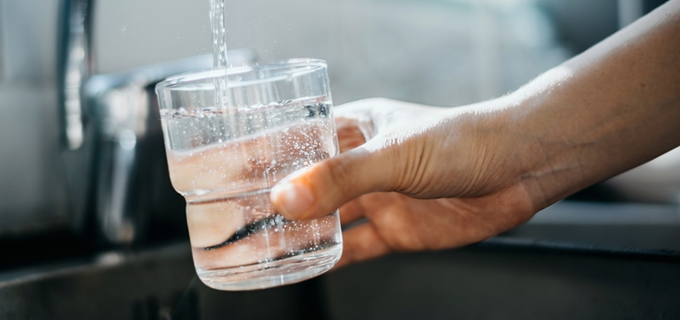Search for a doctor or hospital in your network.


Search for a doctor or hospital in your network.

Get News & Updates Directly To Your Inbox
You might not know when you’re dehydrated. But it could be behind your headache. Or why you feel tired and lack energy. It’s definitely not something to ignore.
People of all ages may become dehydrated. But it’s especially dangerous for young children and older adults, says Mayo Clinic. ![]()
The most common cause in young children is severe diarrhea and vomiting.
For adults, dehydration is common during heavy exercise or if you don't drink enough water during hot weather. But just not drinking enough water over time can also lead to dehydration. You may not notice until it’s a problem. So making sure you get enough every day is essential.
Older adults are at risk because they have less water in their bodies and often have health problems or take drugs that can cause dehydration.
Thirst is an obvious sign. Many people don't feel thirsty until they're already dehydrated.
Dehydration can hit your body in many ways, ![]() including:
including:
Children may have other warning signs, including fever, diarrhea or vomiting. And they may sweat or seem tired when dehydrated. Babies may urinate less, have a dry mouth and make few tears. If you notice any of these signs in your baby, don’t wait to call your child’s doctor. Dehydration in infants can quickly become a serious health issue.
You can often turn around a mild case by drinking more fluids. But moderate and severe dehydration need urgent medical care, like IV hydration. Without medical care, it can lead to dangerous health issues like heatstroke and kidney failure.
Drink water throughout the day, whether you feel thirsty or not. It may help to keep track of how much you’re drinking.
You’ve probably heard that you should aim for eight glasses of water per day. But how much water you need depends on your weight, age, level of activity, the climate where you are and other factors. Talk to your doctor about how much is right for you.
People with diabetes, heart disease, cystic fibrosis and other health problems may need to be cautious about how much water they drink, says the Cleveland Clinic.
Keep in mind that not all liquids are hydrating. Drinking water and other liquids that don’t have caffeine, alcohol or sugar is the best way to hydrate. You can give your water a boost with rehydration powders. And if you’re working out or being active, especially if it’s hot, you may want to have sports drinks that replace fluids and electrolytes like sodium and potassium that are lost when you sweat.
Other liquids can make it harder to stay hydrated. Drinks that have alcohol or caffeine pull water from your body. And fruit juice and fruit drinks may have too much sugar and too little sodium to provide the best hydration.
Not drinking enough water may not sound like a big deal. And you may get over a mild case of dehydration quickly just by upping your fluid intake. But it can be a dangerous sickness. Moderate to severe cases may need hospital care with IV fluids to avoid organ failure and death.
Blue Cross and Blue Shield of Texas, a Division of Health Care Service Corporation,
a Mutual Legal Reserve Company, an Independent Licensee of the Blue Cross and Blue Shield Association
© Copyright 2026 Health Care Service Corporation. All Rights Reserved.
Verint is an operating division of Verint Americas, Inc., an independent company that provides and hosts an online community platform for blogging and access to social media for Blue Cross and Blue Shield of Texas.
![]() File is in portable document format (PDF). To view this file, you may need to install a PDF reader program. Most PDF readers are a free download. One option is Adobe® Reader® which has a built-in screen reader. Other Adobe accessibility tools and information can be downloaded at https://www.adobe.com/trust/accessibility.html.
File is in portable document format (PDF). To view this file, you may need to install a PDF reader program. Most PDF readers are a free download. One option is Adobe® Reader® which has a built-in screen reader. Other Adobe accessibility tools and information can be downloaded at https://www.adobe.com/trust/accessibility.html. ![]()
![]() You are leaving this website/app ("site"). This new site may be offered by a vendor or an independent third party. The site may also contain non-Medicare related information. Some sites may require you to agree to their terms of use and privacy policy.
You are leaving this website/app ("site"). This new site may be offered by a vendor or an independent third party. The site may also contain non-Medicare related information. Some sites may require you to agree to their terms of use and privacy policy.
Powered by Verint